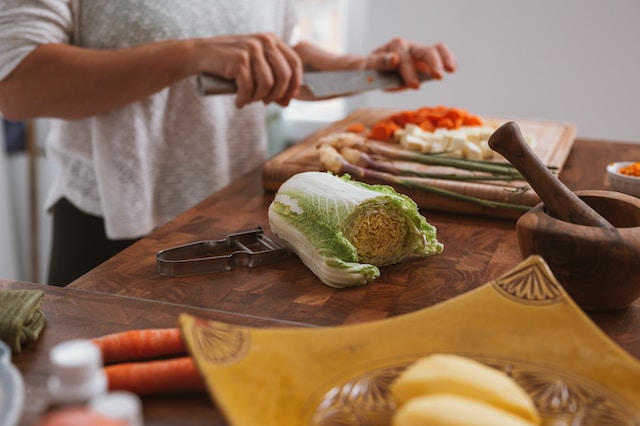Dissertation writing is an intellectually demanding task that requires not just mental acuity but also physical well-being. One surprising yet effective way to nourish both the mind and the palate during this process is by attending a cooking school. This article explores how cooking school can be instrumental in enriching your dissertation-writing experience.
Cooking provides an opportunity to boost creativity through experimentation. The same can be said for dissertation writing. Not only do you explore unique ideas and perspectives, you also utilize a trial-and-error approach to expressing these ideas in a scholarly way. The creativity required for both activities is more than just a mental challenge – it’s a physical one as well. Cooking school provides an avenue to stimulate the skills mind through creative problem solving as you explore various ingredients and techniques.
A Creative Escape: Breaking the Monotony of Writing
Engaging in a cooking class provides a much-needed break from the tedious routine of researching and writing. It’s a creative escape that allows you to use a different set of skills. This diversion is not just for relaxation – it’s a productive way to enhance your creativity and problem-solving skills. Cooking requires you to experiment and think on your feet, which are also essential for academic writing. The mental break and the stimulation of different cognitive functions can make you return to your dissertation with a refreshed and more creative mindset.
Culinary Skills for Brain-Boosting Meals
The brain consumes a significant portion of your body’s energy, and when you’re engaged in something as intellectually demanding as dissertation writing, proper nutrition is crucial. Cooking classes teach you how to prepare healthy and tasty meals. Learning how to incorporate brain-boosting ingredients like fish, nuts, and vegetables into your meals can improve cognitive functions. Moreover, the knowledge of quick recipes can save time, which is a valuable commodity during dissertation writing.
Social Interaction and Networking
Dissertation writing can be isolating, and sometimes the loneliness can be demotivating. Cooking classes bring together people from different walks of life. This social interaction is not just an antidote to loneliness; it’s an opportunity for networking. You never know who might provide you with insights or information that could be invaluable for your research. Furthermore, explaining your work to someone outside of your field can help you look at your research from a different perspective.
Cooking classes are also a form of physical exercise and an opportunity for a valuable break from the stress of writing your dissertation. Breaking up your writing with an enjoyable activity can help keep your brain fresh during the process. Working with ingredients like herbs and spices can help stimulate your senses and help spark creativity as you continue on the dissertation journey. Additionally, cooking classes can provide the opportunity to interact with instructors who are knowledgeable about nutrition and health, allowing you to learn more about how to stay healthy, energized, and productive during the dissertation writing process.
Stress Relief and Mindfulness
Cooking is often cited as one of the activities that can help relieve stress. The act of cooking can be meditative, as it requires focus and attention to detail. As you chop, sauté, and simmer, your mind gets a break from the worries and stress of your dissertation. This mindfulness, where you are fully present in the moment, can be incredibly therapeutic. Lower stress levels can make you more productive when you return to your academic work.
Cooking can also be an outlet for your creativity. You can experiment with different recipes and ingredients, finding ways to prepare dishes that are healthful and flavorful. After a few successful attempts, you can begin to develop your own recipes and take pride in creating something from scratch.
Building Discipline and Time Management Skills
Cooking requires a certain level of discipline and time management – you need to measure, monitor, and manage multiple things at once. These skills are transferable to dissertation writing, where you need to juggle research, writing, proofreading, and often other academic obligations. The discipline you develop in the kitchen in following recipes and optimizing your time can be mirrored in how you tackle your dissertation.
Attending cooking school while working on your dissertation can be a transformative experience. Not only does it offer a creative escape, but it also empowers you with culinary skills for brain-boosting meals, provides opportunities for social interaction and networking, aids in stress relief, and helps in building discipline and time management skills. In essence, cooking school nourishes both the mind and the palate, creating a recipe for successful dissertation writing. By integrating this culinary journey into your dissertation-writing process, you can craft a more enriching and balanced scholarly journey.
